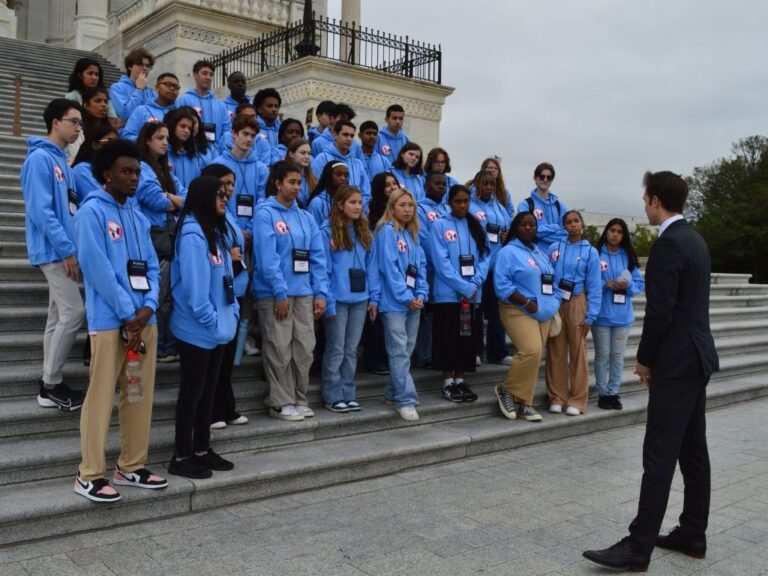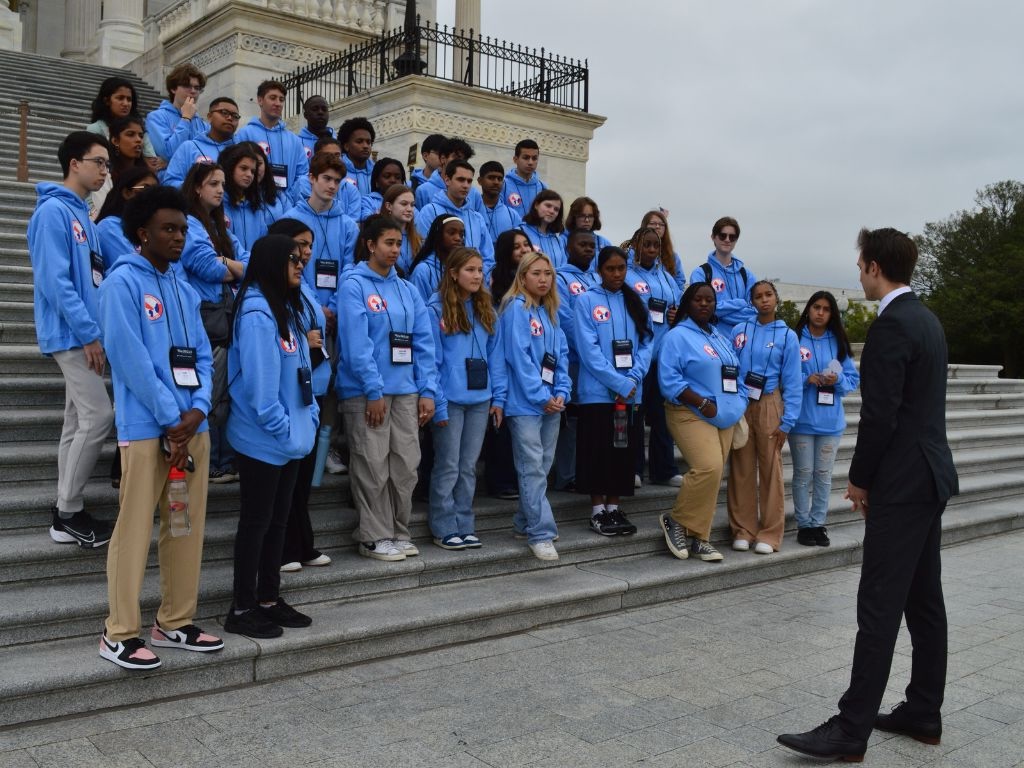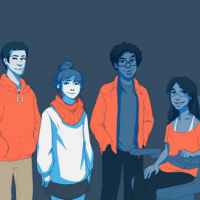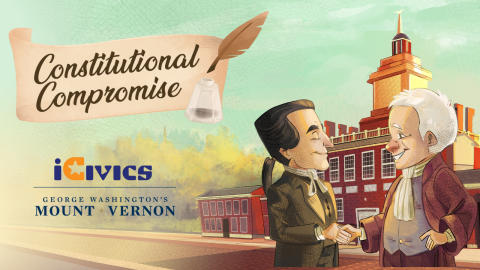
Now in its fifth year, the fellowship helps students from across the country build civic leadership skills and explore how civic education can become more relevant to all youth in the United States
September 20, 2023—iCivics has selected 34 talented high school students from across the country to take part in the iCivics Equity in Civics Youth Fellowship (ECYF). The students were selected after a competitive process that saw nearly 350 applicants from 38 states and Washington, D.C.
The yearlong fellowship helps students develop leadership and communications skills in collaboration with peers and experts in the field of civic education. Throughout the year, students research and explore how civic education can become more equitable for students across the United States, utilizing their own lived experiences to become ambassadors and shed light on how civic education can include student voices from every background.
“I am excited for this year’s fellows to come together, learn from one another, and use their lived experiences to shed some light on the current state of civic education for our young people,” said iCivics Youth Engagement Coordinator Michael Reyes.
The fellowship kicked off in late August, and moves into full-gear with an in-person symposium in Washington D.C. in early fall. It continues through the 2023-2024 school year as fellows engage virtually in group discussions with their peers, workshops and lectures with experts in the field, and projects designed to strengthen listening and collaborative skills. All of the fellows’ work will be centered around ensuring that civic education is available and relevant to all students in the United States.
Over the past five years, students from across the country representing rural, urban and suburban districts have taken part in the fellowship. They have become an integral part of informing the broader civic education movement, sharing their experiences and thoughts at convenings for the Educating for American Democracy initiative, the Ronald Reagan Institute, Civic Learning Week, and the Commonwealth Club. They have been featured in media such as The Wall Street Journal, Chicago Tribune, and WBUR in Boston.
iCivics is proud to announce this year’s Equity in Civics Youth Fellows:
- Maurits A. – Florida
- Titus A. – Arizona
- Liana A. –Maine
- Addison A. – Louisiana
- Alexandra B. – Oregon
- Erica B. – Minnesota
- Maya B. – California
- August B. – Delaware
- Jayla C. – Georgia
- Rainie C. – Oregon
- Ace C. – Iowa
- Shreya D. – Washington
- Miranda D. – New Jersey
- Kora D. – Massachusetts
- HamzaE. – California
- Pablo G. – California
- Kaimy I. – North Carolina
- Daye K. – Georgia
- Shirin K. – Pennsylvania
- Wyatt L. – Arizona
- Mia L. – Illinois
- Dontrell M. – Georgia
- Ronald M. – North Carolina
- Aser M. – Maryland
- Tithi M. – New Jersey
- ColtonM. – New Hampshire
- Folasade O. – Connecticut
- Cian O. – Massachusetts
- Saghana P. – Michigan
- Ellie P. – Virginia
- Elijah S. – Tennessee
- Pratheek T. – Virginia
- AlyssaV. – Ohio
- Sarah V. – New York
For more information about the iCivics Equity in Civics Youth Fellowship, and how to participate, visit the website.



